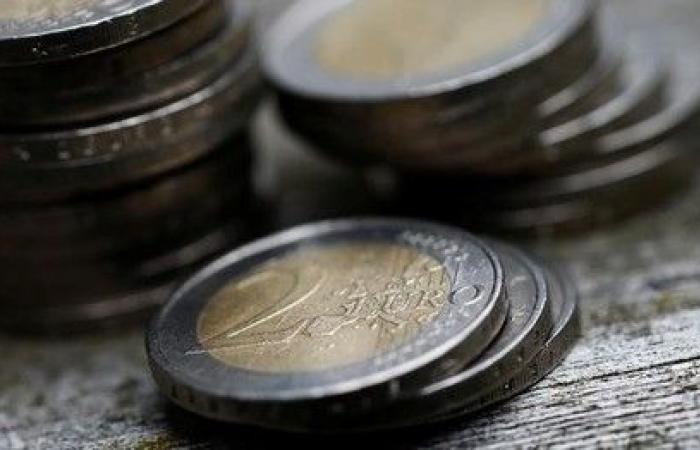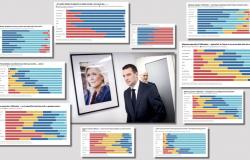Global stocks held steady Friday on the eve of U.S. inflation data, which investors hope will boost the chances of a Federal Reserve interest rate cut in September.
Meanwhile, the yen’s fall to a 38-year low has fueled expectations of intervention by Japanese authorities to stem the weakness after the appointment of a new top diplomat for foreign exchange issues.
S&P 500 and Nasdaq futures both rose ahead of the Fed’s preferred inflation measure, the Personal Consumption Expenditures (PCE) index, due at 1230 GMT, ahead of the opening bell of Wall Street.
If its annual growth slows to 2.6% in May, as economists expect, that could pave the way for rate cuts later in the year.
Traders now give a 64% chance of a first Fed rate cut in September, up from 50% a month ago, according to the CME’s FedWatch tool, although analysts said those expectations could be disrupted if the figures for the basic PCE index surprise on the rise.
Oil was heading for a third consecutive weekly jump on hopes of a benign inflation reading that would bolster the Fed’s ability to reduce borrowing costs.
On the last trading day of the first half of the year, stocks remained close to their recent records. The AI boom on Wall Street has helped the S&P 500 index climb nearly 15% over the past six months, with big gains in Europe and Asia as well.
However, concerns about the outcome of France’s two-stage parliamentary elections that begin on Sunday have pushed the risk premium on French government bonds relative to German bonds to its highest level since the eurozone debt crisis in 2012.
Political uncertainty in France, where the far right is in power, has put the euro on track for its biggest monthly decline since January.
The MSCI All Country Stock Index firmed to 804.8 points, close to its all-time high of 807.17 reached on June 20, and up about 10.5% for the year.
In Europe, the STOXX 600-company index gained 0.36% to 514 points, helping to consolidate its 7% gain for the year, although down so far for June due to the political uncertainty weighing on France.
“In the first half of the year, we saw very good performance from the stock market, and the question we ask ourselves is where the performance will come from in the second half of the year,” said Eren Osman, chief investment officer of heritage at Arbuthnot Latham.
He said tech majors and the artificial intelligence boom should continue to boost stocks in the second half.
“What we see is a very clear narrative that investment in this space is not going to slow down in the near term, so betting against this theme and the likely strong performance of the equity market is probably not a wise choice,” Osman said.
FRAGMENTATION
The dollar and U.S. stock index futures reacted muted to the U.S. presidential debate that saw Democratic President Joe Biden stumble at times in a face-off with Republican rival Donald Trump ahead of the election of November.
“We see a potential Trump administration as more positive for the dollar, both through looser fiscal policy and also through a more aggressive trade/tariff environment,” ING bank analysts said after the debate.
Paul Bloxham, an economist at HSBC, said commodities markets risked further fragmentation and supply disruptions if Trump wins in November, due to an anticipated rise in trade protectionism.
MSCI’s broadest index of non-core Asia-Pacific shares rose 0.2% and was on track to gain more than 3% for the month, its best performance since February.
Chinese markets, meanwhile, reversed initial losses to trade higher, with China’s benchmark CSI300 trailing behind up 0.2%. Hong Kong’s Hang Seng Index rose 0.56%. Investors feared that MM. Biden and Trump take a tougher stance on China during their debate.
In currency markets, the dollar led the way, aiming for a monthly gain of nearly 1.4% against a basket of currencies.
The yen fell to 161.27 per dollar, its lowest level since 1986, and was last trading at 160.505.
The Japanese currency has fallen 2.3% this month and more than 12% for the year against a resilient dollar, as it continues to be hurt by wide interstate interest rate differentials -United States and Japan.
The weakness of the yen, meanwhile, benefited the Nikkei, which rose 0.6% last month. It had been aiming for a monthly gain of around 3%.
In commodities markets, gold firmed slightly to $2,335 an ounce.
Brent crude oil futures rose 0.65% to $87.04 a barrel, while U.S. West Texas Intermediate crude oil futures gained 0.8% to 82.37 $ per barrel.






